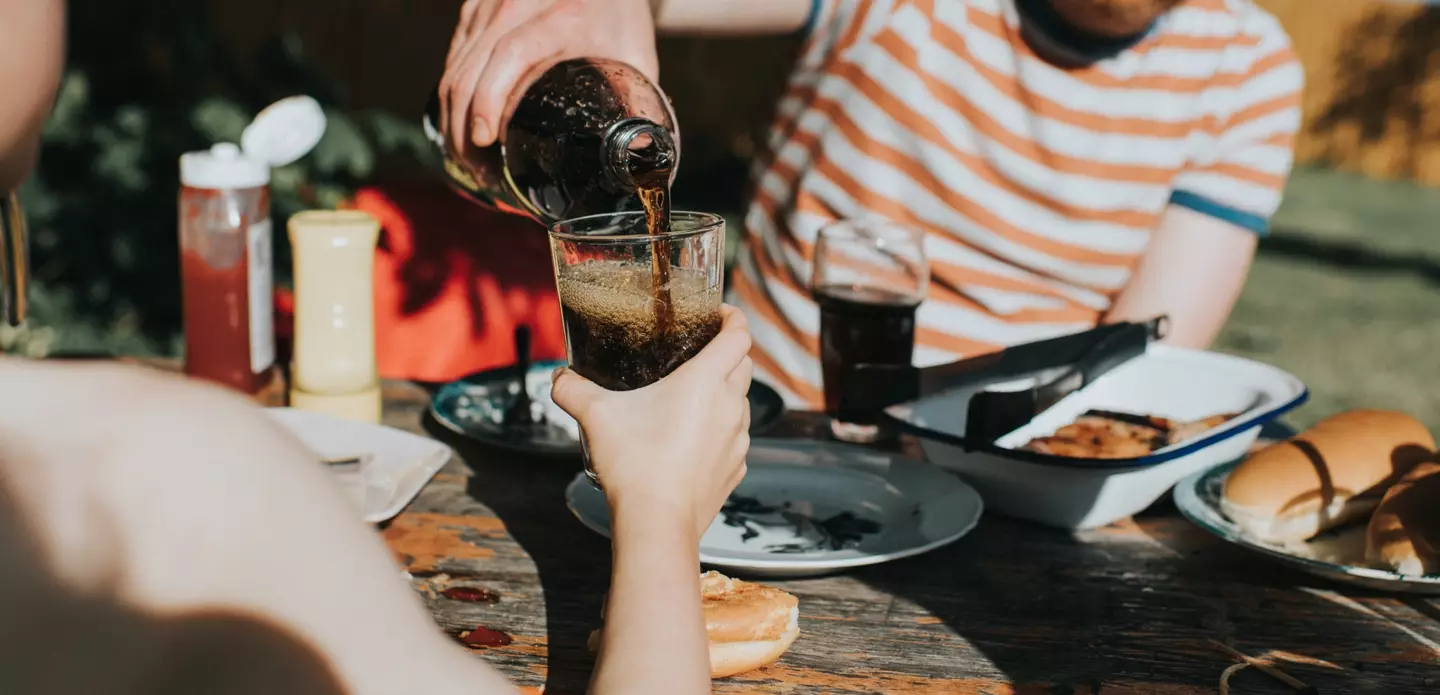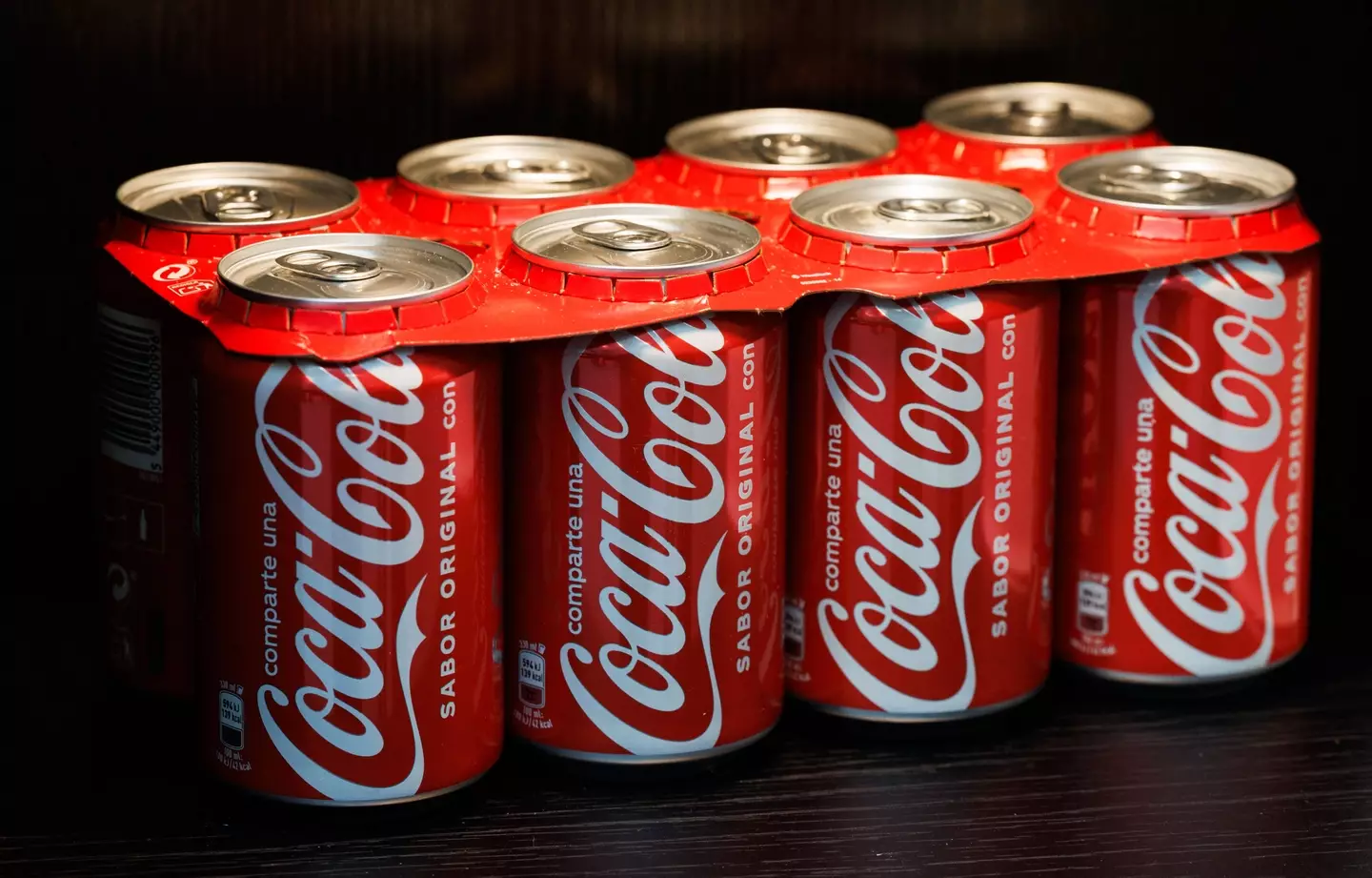
Drinking a single can of Coca-Cola can send your body into a frenzy for up to a full hour, contribute to a major health risk, and cause you to feel both irritable and fatigued, experts have revealed.
According to the Coca-Cola Company, more than 1.9 billion servings of the company’s fizzy drink portfolio are enjoyed in more than 200 countries each day.
The average person drinks a Coca-Cola product, including Fanta, Sprite, and diet sodas, every four days. That rounds out at roughly 92 cans a year, per World Population Review.
As reported by the Telegraph, this high level of sugar-sweetened beverage (SSB) consumption is concerning for various reasons.
Advert
The first is that a single can of Coke contains 35g of sugar. The NHS advises adults to have no more than 30g of added sugar per day.

“Coke is just through the roof [for sugar],” said specialist registered dietitian Nicola Ludlam-Raine.
“In my opinion, it shouldn’t be allowed to be sold. What we know is that sugar feeds the bacteria in your mouth that produce acid, and the acid weakens the tooth enamel, leading to cavities.”
Other experts have sounded the alarm about its caffeine content, while some are more concerned about the bottle’s impact on our bodies.
What happens to your body when you have a can of Coke?
Did you know it takes just 10 minutes for your favourite fizzy drink to hit your bloodstream?
In another 10 minutes, you’re likely to experience both a blood sugar surge and a spike in your insulin levels.
Robert Lustig, an endocrinologist at the University of California, San Francisco, told the Telegraph that sugar is sent straight to the liver, where it is turned into fat, eventually leading to the development of fatty liver disease.
45 minutes after drinking the Coke - whether it be in bottle or can form - your body would have successfully absorbed all the caffeine content.

Drinking large amounts of the beverage can lead to dependence. Symptoms include headaches, fatigue, and muscle aches, as per Healthline.
A full hour after guzzling your Coke, you’re likely to experience a huge sugar crash.
Your body works hard to release the insulin that has built up within the first 20 minutes, but unfortunately, it sometimes overshoots, according to Ludlam-Raine.
This bump back down to Earth can cause you to experience a sugar crash, and often comes with feelings of irritability, anxiety, and heart palpitations.
Studies into how fizzy drinks affect health
In early October, a study presented at UEG Week 2025 found that both SSBs and low- or non-sugar-sweetened beverages (LNSSBs) were associated with a higher risk of developing metabolic dysfunction-associated steatotic liver disease (MASLD).
The latter is a type of chronic liver disease that is diagnosed when there is an excessive fat build-up in the liver, with symptoms including fatigue, abdominal pain, and potentially more severe issues like jaundice and confusion.
Findings backed up previous research published in the Nature Medicine journal in January, which discovered carbonated drinks were linked to millions of cases of type 2 diabetes and heart disease.
Experts discovered that globally, proportional SSB-attributable burdens were higher among men than women, and that younger people in urban areas were more likely to be affected by consumption.
These worrying patterns were attributed to the idea that many people typically consume full-sugar, fizzy drinks like Coke alongside a poor dietary plan, low in both fruit and fibre.
Following the study, published in January, a British Soft Drinks Association spokesman confirmed that as of September 2025, soft drinks’ share of ‘total take-home sugar in the overall food and drink category in Great Britain is just 6 per cent’.
Carbonated beverages can be enjoyed as part of a well-balanced diet when consumed in moderation.
FOODbible has reached out to Coca-Cola for comment.
